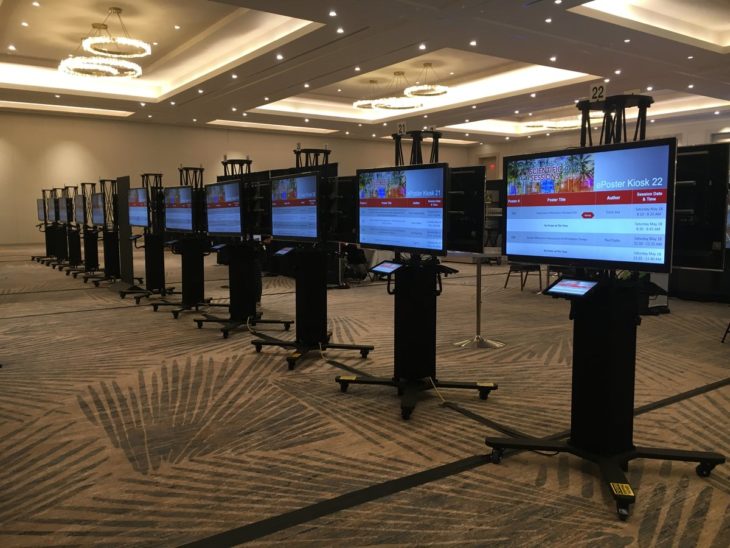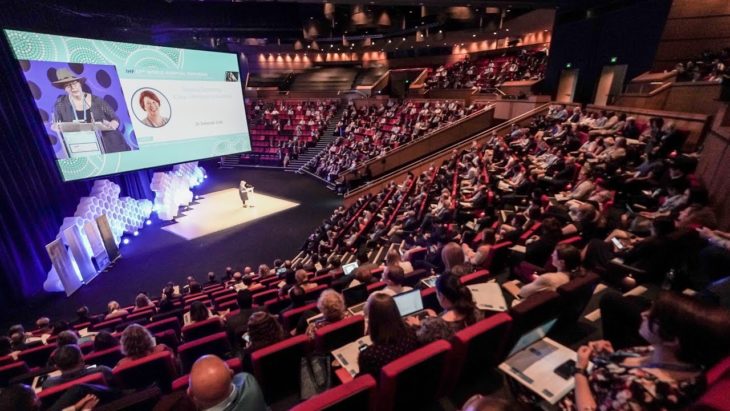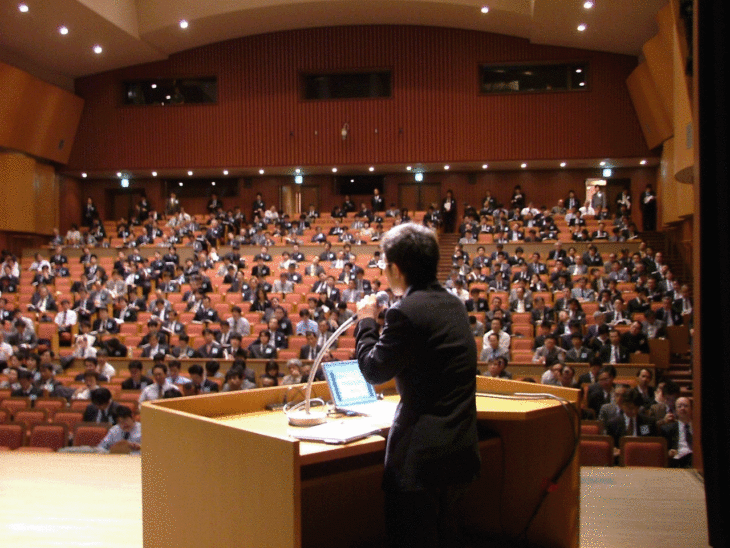The results of any medical research can be presented to your colleagues or to public opinion in various formats: written, oral, or mixed. Written presentations would include publishing articles-both online, in specialized journals or as chapter in a compilation book-or writing bigger projects such PhD thesis. Oral presentations, on the other hand, would consist of conferences, participation in symposia or round tables and oral communications or presentations in congresses aimed to show the results of the written research to an specific audience. In congresses we can also find a third vehicle to show the results of a research project, which are medical posters.

Source: Twitter
Medical posters
Posters have a number of advantages over the rest of presentation forms. They make it possible to show complex experiments with clarity introducing a wide variety of illustrations; and, since they do not have time restrictions as oral communications do, you can lengthen the discussion with those interested in the subject as much as both parts decide.
A medical poster combines a written part and a graphic part, all in a pleasant and legible design. The poster elements are the heading (title, authors); a brief introduction, hypothesis and goals of the research, the materials and methods used during the investigation, and then the results and conclusions. There are different ways to create an ePoster. You can either project a previously-designed PowerPoint or PDF file onto a screen, or use special software tools to design and upload your ePoster. In online platforms such as Poster Session Online you can create your scientific electronic posters from scratch.

Source: Australian Healthcare & Hospitals Association
The discussion of the poster depends on the organization of the congress. Sometimes there are only a few hours of visit in general where the posters can be read, while in others there is a formal session with a well-established schedule and moderators who tour the room in which the posters are arranged. Another option to start a discussion about the poster in the congress online forums or in medical poster databases forums such as the offered by Poster Session Online. Online forums eliminate the restrictions imposed by oral conferences. The attendees can establish direct communication with the author(s) of the poster promotes and exchange opinions with other fellow researches with a tranquillity that is difficult to achieve in the context of a large-scale conference in a congress.
One of the main defects in the production of these posters is to incorporate too much words or using a font size that is not readable from a long distance. Avoid using too much information, arrange it in order and visually highlight the key elements. You can also prepare a small poster to give to colleagues who are interested in your work. Obviously, this information should also be clear and legible.
Oral presentations
A congress, seminar, symposium or workshop is a very valuable scientific act to share research with experts in the same area. Normally, the oral presentation of a scientific paper at such an event is supported by a written publication of the paper in the form of a scientific abstract or article. The main objective of the oral presentation of a scientific research should be to encourage the audience to read the written paper in which the research is described. To do this, a clear and concrete message must be sent efficiently to the audience.

Source: SLTBR
The oral presentation of the research should also be used to discuss the results presented, which may help enrich current research or may help to initiate new research. It is very important to avoid the four most common mistakes in oral presentations:
- Not rehearsing. This is the main cause of many problems that arise during the presentation. Rehearse and review the presentation as many times as necessary, errors are always found.
- Wanting to explain the whole research. The main purpose of the presentation is not to tell everything, but to encourage the public to read your article.
- Exceeding the time.Time is the worst enemy of an oral presentation. Respect the time you have allotted for your presentation. If you don’t, you will generate several situations that won’t benefit you: the moderator will call your attention, you will run out of time for question time to discuss your work, the public’s interest in your work will diminish and they will most likely remember you as a person without the capacity to give an oral presentation of their work.
- Not taking advantage of question time: the oral presentation allows you to share your work with other scientists and receive their comments at the same time. Take advantage of the question time to discuss your work, it can help you improve your work or it can even open the doors to future research.
